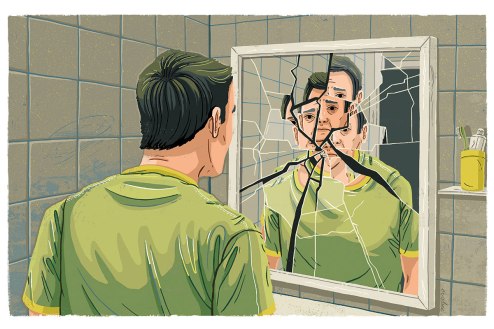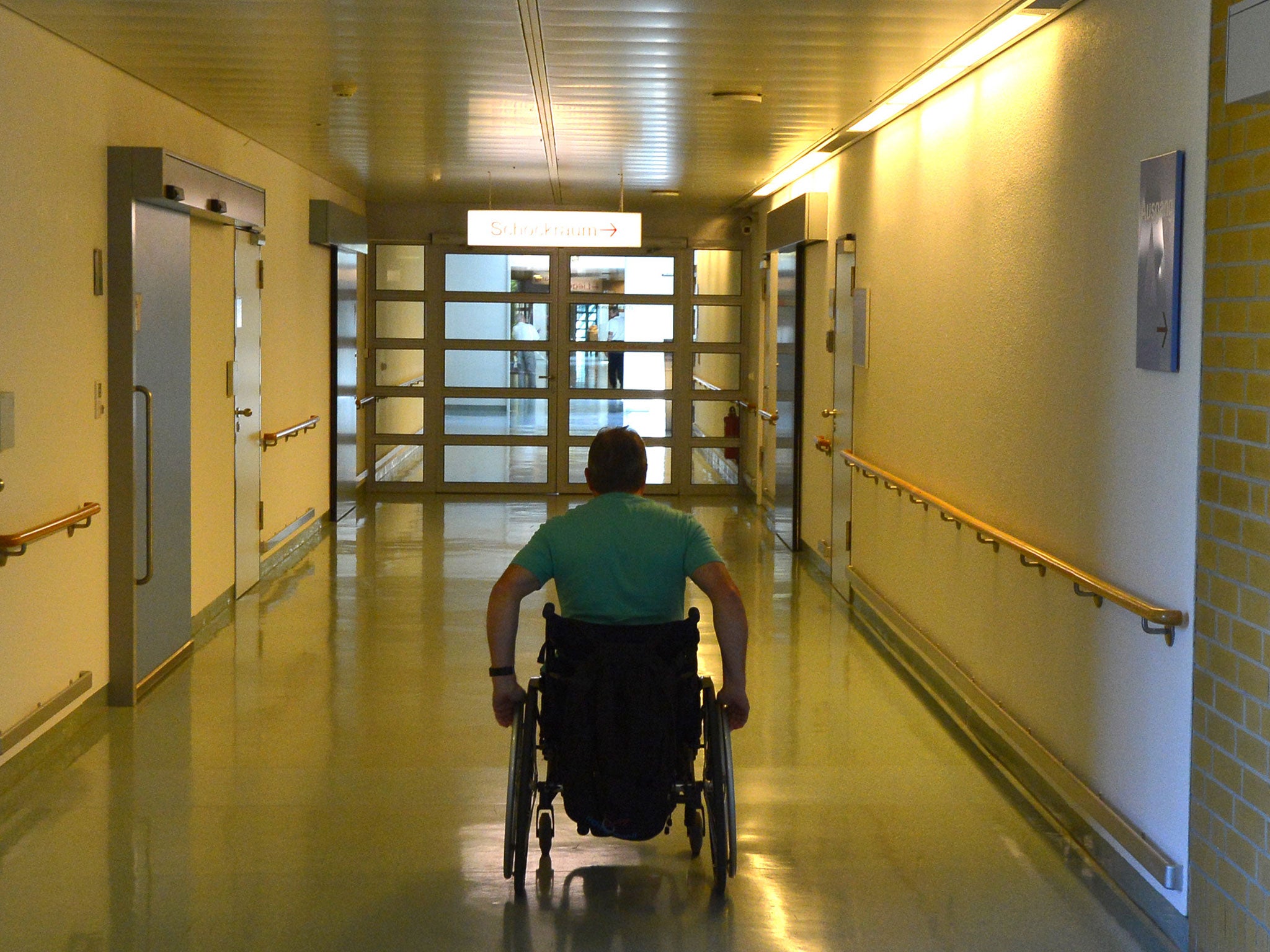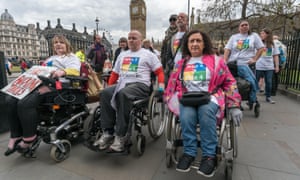
The National Audit Office is to demand information from Department for Work and Pensions (DWP) on a ‘serious and important’ issue after ministers refuse to provide figures on how many people claiming social security have taken their own lives. The watchdog is to investigate the government’s monitoring of suicides among welfare claimants amid longstanding concerns about links between welfare reforms and declining mental health.
The National Audit Office (NAO) said it would call on the DWP to reveal what information it held on the suicides, after ministers refused to provide an MP with figures on the number of people in the welfare system who had taken their own lives.
In a letter seen by The Independent, the watchdog said it was “clearly a very important and serious” topic and that it would consider trying to collate the information itself if the government could not provide it.
It comes as charities raise concerns about links between welfare reforms and declining mental health among claimants, with an increasing number of self-inflicted deaths being associated with financial difficulties stemming from cuts to support.
A number of studies have established links specifically between universal credit and an increased risk of suicide, with experts blaming the “complicated, dysfunctional and punitive” nature of the new benefit and the frequency at which it pushes people into hardship, debt and rent arrears.
In December 2017, for example, concern was also raised when an analysis of NHS data showed that attempted suicides among out-of-work disability support had more than doubled since the introduction of work capability assessments in 2008.
The survey revealed that 43 per cent of Employment and Support Allowance (ESA) claimants – and as high as 47 per cent of female ESA claimants – had attempted suicide in their lifetimes, compared with 7 per cent of the general population.
In response to the figures, Dr Jay Watts, a consultant clinical psychologist and member of the campaigning Alliance for Counselling and Psychotherapy, said at the time: “These results are staggering. It is difficult to overemphasise how large a jump in rates of attempted suicide this is. I cannot think of a greater jump in rates in any population.
“If the Government has any real interest in suicide prevention, benefits reform must be the immediate priority. The UN has condemned the government’s treatment of disabled people as contrary to their human rights.
“The shame, guilt, anxiety and paranoia the current system provokes is a national scandal, that should be headline news. Making the workless feel worthless, and under-serving of support, has provoked a mental health emergency.”
A study by leading academics of claimants and support staff in Gateshead and Newcastle found the new benefit to be a “complicated, dysfunctional and punitive” system that forces people into debt and rent arrears and “simply doesn’t work” s claimed by the government.
The research, among the first to focus on the experiences of claimants in a universal credit full service area, also said it was making people increasingly anxious and depressed and worsening existing health problems. Catherine Donovan, deputy leader of Gateshead Council, said: “This report confirms the significant hardship we have seen people and families in Gateshead endure for some time now.
“Austerity is not over. The roll out of universal credit means people are having to choose between eating and heating. It is appalling that people in this study talked about feeling so low, they had considered suicide.
“They talked about the shame and stigma of using food banks. With Christmas coming, the impact on communities and families will be extremely hard. I’m calling on government to scrap universal credit as a matter of urgency.”
At the time the research was published, a DWP spokesperson said: “This survey of 33 claimants doesn’t match the broader experience of more than 9,000 people receiving universal credit in Gateshead, who are taking advantage of its flexibility and personalised support to find work.”
That is atrocious gaslighting.
There are also serious concerns and individual case of premature mortality, within a short time of someone being deemed ‘fit for work’, as well as the increase in numbers of people having suicidal thoughts and taking their own life, raised by many disability campaigners since the implementation of welfare ‘reforms’.
The United Nations concluded in a formal inquiry that the welfare ‘reforms’ have ‘systematically and gravely’ violated the human rights of ill and disabled people.
Government ministers, however, simply denied that this is so, and have accused us of “scaremongering” denying any “causal link” between their punitive policies and distress and harm of citizens. Yet studies have established a clear correlation. Without further investigation, the government have no grounds to dismiss the possibility of a causal link.
Campaigners have said that it was “unacceptable” that the DWP does not appear to record suicides among people claiming social security support and that it was “vital” for it to start doing so in order to assess the impact of changes to the welfare system.
Kamran Mallick, from Disability Rights UK, said: “This is a crucial issue which demands a thorough review. The welfare benefits system is confusing and challenging to navigate at the best of times.
“The causes of suicide are complex and multi-layered. But there’s no doubt that few disabled people find the benefits system welcoming and supportive, and for some it induces high levels of mental and emotional distress.”
Deborah Coles, director of charity Inquest, said: “That people have been so desperate to take their own lives as a result of the punitive and cruel benefits system is a serious concern that requires much greater scrutiny.”
Frank Field MP, chair of the Work and Pensions Committee, who requested the data from ministers in a written question, said in his subsequent letter to the NAO: “I struggle to believe that, given the time it must take to put together evidence for inquests, attend court hearings, and internally review the decisions, that there is no record of such.
“It shocks me even more that the DWP is apparently unconcerned with the most drastic efforts of its policies and conducts no internal monitoring of the tragedies in which it is complicit.”
Field told The Independent he was “pleased” to hear that the NAO was now looking into the issue, adding: “This for the first time will give us some concrete facts on the link between the current welfare system and suicide rates among claimants.”
In one suicide case, published in April in Derbyshire Live, a man who took his own life after running out of money for his electricity meter reportedly left a suicide note sarcastically “thanking” universal credit bosses.
In another, an inquest ruled last month that the mental health of a disabled man who took his life after his benefits were cut was “severely and adversely” affected after the DWP declared him fit for work, as reported by the i newspaper.
Ayaz Manji, senior policy and campaigns officer at Mind, said: “Suicides are not inevitable, they can be prevented, and the DWP is responsible for making make sure its processes and policies are safe for those of us at our most unwell, and not causing serious harm.
“We still hear every week from people with mental health problems who have struggled to cope with the impact of sanctions, repeated and unnecessary fit-for-work assessments, and other changes to their benefits.
“It’s important that the DWP is held to account when independent investigations cite problems with benefits as a factor in someone taking their life. We cannot continue to wait until someone else takes their own lives before change happens.”
Sara Willcocks, head of communications at charity Turn2us, said: “It is disappointing that the DWP does not already know how many of its claimants have committed suicide. We believe it is vital that the department records this data so it can draw correlations between changes to the welfare benefits system and increases or decreases in suicide.”
A DWP spokesperson said: “The death of a claimant is always a tragedy and whilst this is not an inquiry, we will engage with the NAO on this important topic.”
However, an inquiry is long overdue.
How many people with chronic illness and disability have simply died because they can’t meet their most fundamental survival needs in light of austerity cuts?
What kind of government shows no concern or remorse that its policies are destroying some citizens’ lives?
And continually denies that this is happening?
This prompts another question; the risk of suicide among support-dependent disabled people is now foreseeable. Does the government intentionally disregard us as economically “surplus to requirements” and ultimately disposable? When the evidence points so clearly to the relationship between austerity cuts, which have disproportionately been targeted at the poorest and most fragile citizens, and suicide, it’s hard to reason otherwise. Especially when the government shows nothing but supreme indifference to those of us raising these serious concerns.
The link between social security cuts and suicide cannot and must not be denied or ignored any longer.

If you’re feeling suicidal, you can contact your GP, call 999, go to A&E, call the Samaritans on 116 123, or email them at jo@samaritans.org
I don’t make any money from my work. But you can support Politics and Insights by making a donation which will help me continue to research and write informative, insightful and independent articles, and to provide support to others going through disability assessments and appeal. The smallest amount is much appreciated, and helps to keep my articles free and accessible to all, and helps towards the costs of runnimg this site – thank you.










